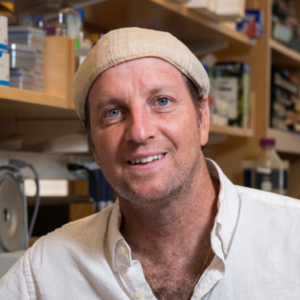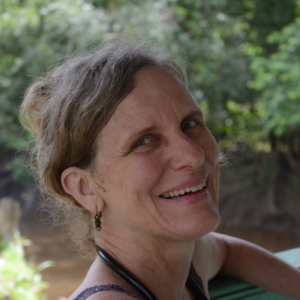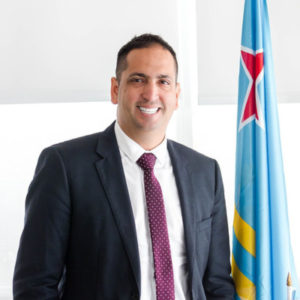Xavier University School of Medicine Set To Host 2024 Global Health Leadership Summit
In the dynamic global healthcare industry, where challenges and opportunities intersect with unprecedented complexity, fostering collaboration and furthering knowledge has become vital. Among these initiatives to educate our students about this landscape is the Xavier University School of Medicine Global Health Leadership Summit.
“Xavier University School of Medicine is honored to host the 2024 Global Health Leadership Summit, a beacon of collaboration and innovation in the realm of global health,” said Ravi Bhooplapur, President of Xavier University Aruba. “This event stands as a testament to our commitment to fostering dialogue and exchanging knowledge to address the complexities of healthcare access and outcomes worldwide. We are excited to bring together diverse perspectives and expertise to drive meaningful learning towards a healthier, more equitable future for all.”
The event will take place on Friday, May 17 on the campus of Xavier University in Oranjestad, Aruba. The guest speakers include:

Dr. Raul Mostoslavsky
Dr. Raul Mostoslavsky received his MD from the University of Tucuman, Argentina, and his PhD from the Hebrew University of Jerusalem. He is currently the Scientific Director of the Massachusetts General Hospital Krantz Family Cancer Center, and the Laurel Schwartz Professor of Medicine at Harvard Medical School.
His laboratory is interested in understanding the role of chromatin dynamics in modulating cellular homeostasis, particularly the crosstalk between epigenetics and metabolism. In particular, his work has focused on the mammalian Sir2 homologue, SIRT6, a histone deacetylase. In early work, his laboratory identified SIRT6 as a key modulator of glucose metabolism, functioning as a histone H3K9 deacetylase to silence glycolytic genes acting as a co-repressor of Hif1alpha. This function appears critical for glucose homeostasis, as SIRT6 deficient animals die early in life from hypoglycemia (Mostoslavsky et al., Cell 2006; Zhong et al., Cell 2010). Later work demonstrated that SIRT6 functions as a major tumor suppressor in colon adenocarcinoma and skin cancer by inhibiting glycolytic metabolism (Warburg effect)(Sebastian et al., Cell 2012; Kugel et al., Cell Reports 2015; Choi et al., Nat. Metab. 2021; Sebastian et al., Nat.Comm. 2022) and in pancreatic cancer by silencing Lin28b, a developmental gene (Kugel et al., Cell 2016). More recently, his laboratory identified the first human syndrome of SIRT6 deficiency (Ferrer et al., Genes&Dev 2018), and discovered SIRT6 as a driver of transcriptional pausing (Etchegaray et al., Mol Cell 2019). He also investigated roles for chromatin factors in DNA repair and early development (Toiber et al., Mol. Cell 2013; Etchegaray et al., Nat. Cell Biol. 2015; Martinez Pastor et al., Cell Rep. 2020). Overall, his laboratory has provided new insights into the relationship between metabolism and epigenetics, particularly in cancer, two fields that appear to crosstalk in a critical and previously unrecognized manner. His most recent studies are focused on the unique epigenetic and metabolic adaptations of cancer cells under nutrient deprivation, with a particular focus on metastatic disease (Linder et al., Nature Metab. 2023; Ferrer et al., in revision).
He has directed and taught The Chromatin Dynamics Course at Harvard Medical School for the past 10 years, he had organized numerous international Meetings, served as Permanent Member in the CMAD NIH Study Section, and has been funded continuously by NIH for the past 15 years. For his work, he received numerous awards, including the 2002 Science Amersham Prize, the MLSC New Investigator Award, the 2015 Glenn Award, the 2017 Raices Awards for International Cooperation, and the 2018 MGH Graduate Students Division (GSD) Mentoring Award.

Dr. Linnea Smith
Born and raised in Wisconsin, with stints in Kentucky and Tennessee, Dr. Linnea Smith pursued her medical education at the University of Wisconsin – Madison, graduating in 1984. After completing additional training in Internal Medicine, she embarked on a career in a small group practice in Prairie du Sac. However, her life took a remarkable turn when she visited Peru in February 1990. What started as a vacation transformed into a lifelong commitment. Moved by the need for medical care in the Peruvian jungle, she returned armed with medical supplies and a leave of absence from her Wisconsin practice, dedicating herself to serving the local community.
Settling in Peru, she found a home and purpose with Explorama, a support system that provided lodging, transportation, and encouragement. Despite the challenges of limited resources and language barriers, she persisted in her mission to provide medical care to those in need. With the support of Rotary Club members, she oversaw the construction of a clinic along the Amazon River, ensuring better access to healthcare for the local population. Over the years, she trained local staff, including nurses and technicians, fostering a sustainable healthcare model for the community.
Her efforts garnered support from various quarters, including generous donations from tourists, Rotary clubs, and charitable trusts. Despite the uncertainties brought by the pandemic and her advancing age, she remains committed to her work, though now focusing more on supervising the Peruvian staff. Grateful for the opportunity to make a difference, she continues to be inspired by the dedication and abilities of her team, while cherishing her time with loved ones back home.

Hon. Dangui Oduber
Upon completing high school in Aruba, Dangui Oduber migrated to The Netherlands to continue with his studies. He attended lnholland University of Applied Sciences in the city of Rotterdam, where he graduated in 2005 with a bachelor’s degree in Economics, Management and Law. Subsequently his professional career started at Dutch insurance companies “HDI Verzekeringen N.V” and “Nationale Nederlanden”. After having acquired sufficient international professional skills, Dangui Oduber returned to Aruba where he furthered his career working at SETAR N.V., Aruba’s telecommunication company.
In 2013 Dangui Oduber decided to enter the political arena and joined the political party “Movimiento Electoral di Pueblo” (MEP), which is aligned with his political ideology, and is also the same party his father led for more than 25 years. During his first election he got sufficient votes from the people to secure his seat in the Aruban Parliament.
Having proven himself in the Parliament of Aruba, in 2017 Dangui Oduber got elected to become the Minister of Tourism, Public Health, and Sports. Under his leadership Aruba’s tourism performance not only thrived up until 2020 before the global pandemic hit, but he also led the tourism recovery plan that brought the country economically back on its feet. Additionally, Aruba has been recognized internationally for its unique and innovative approach regarding health credentials during the pandemic. As a young and driven Minister, Dangui Oduber is still currently representing the Aruban people as Minister of Tourism and Public Health since he was reelected in 2021 to serve during Cabinet Wever-Croes 2 period (2021-2025).
Dangui Oduber is the middle of three children of Aruba’s former Prime Minister Nelson Orlando Oduber. He was born in Aruba on July 13, 1978 and is married with two sons. Growing up in a family with a long political history, he decided to become an Aruban politician as a member of the political party “Movimiento Electoral di Pueblo” (MEP), following his father’s footsteps.

